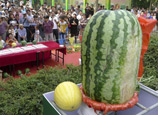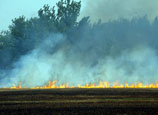
Story Highlights:
? Rouhani is leading the ballot counts with clear margin and is approaching an unexpected victory.
? Rouhani has gained 51.77 percent of all votes as of Saturday noon.
? If Rouhani wins over 50 percent of the votes, it would be a surprise to Iranian society and the world.
TEHRAN, June 15 (Xinhua) -- Moderate candidate in Iran's presidential election, Hassan Rouhani, is leading the ballot counts with clear margin and is approaching an unexpected victory over his conservative rivals who have been blamed for causing the country's social and economic disturbance.
Rouhani, candidate of Iran's Moderation and Development Party, has gained 6,049,655 out of 11,686,139 valid ballots, which amount to 51.77 percent of all votes, as of Saturday noon.
Before the election on Friday, nearly 50.5 million eligible voters were expected to participate. Press TV said Saturday that the turnout could hit 80 percent. But the exact number of voters has not been announced by the Interior Ministry.
The outcome of the results, in case Rouhani wins over 50 percent of the votes, would be a surprise to the Iranian society and the world as well since many believed that he did not enjoy Iran's Supreme Leader Ayatollah Ali Khamenei's support.
Over the past decades and in the absence of secular parties in Iran's political stage, presidential competitions have been the focus of struggle between reformists and conservatives, who have adopted Islam as the ideological foundation of their sociopolitical positions.
Both reformists and moderates have long been in bitter disputes with the hardline conservatives over the country's domestic and international policies, which at the hand of the hardliners have made the country more isolated and national economy further deteriorated under Western pressures.
TIMELY SUPPORT
Rouhani has gained momentum since Iran's reformist leader and former President Mohammad Khatami announced his support for him just three days ahead of the race.
Khatami, who led the reformists to win the presidential polls in 1997 and 2001, said he would vote for Rouhani due to the responsibility he feels toward the country and the fate of the Iranian nation.
Both Khatami and another ex-president, Akbar Hashemi Rafsanjani, voiced their support for Rouhani during Friday's voting.
Sadeq Zibakalam, a professor of politics at Tehran University, told Xinhua Saturday that with the support of Khatami and Rafsanjani as well as his pragmatic policies, Rouhani is capable of uniting reformists and moderates to put more weight in his bid for presidency.
Compared to the bolster Rouhani gets, the conservatives may suffer a big unanticipated defeat due to disunity, as three conservative candidates were running for the election, namely Tehran's Mayor Mohammad-Baqer Qalibaf, former Foreign Minister Ali- Akbar Velayati, and chief nuclear negotiator Saeed Jalili.
MODERATE POLICIES
Analysts believe that people's inclination toward the moderate candidate may have its root in the past eight-year performance of the hardline conservatives, which has driven the country's economy and social stability to the verge of collapse.
The major reason for Rouhani to get the majority of votes is the voters' desire to bring changes to the country, said Zibakalam.
In his campaign speech, Rouhani showed his distance from the conservatives' hardline policies in the sociopolitical scene of the country. He said he would stay away from extremism but stick to policies of Khatami and Rafsanjani that aim to ease Western sanctions by improving relations with the international community.
Rouhani said he would have a "constructive interaction" with the world if elected, emphasizing that "We can solve our problems with the world and correct our policies."
"Today, we should cooperate with the world on the basis of rationality and wisdom," he said.
Elaborating on Rouhani's foreign policy if he wins the election, Zibakalam said "If Rouhani takes a positive step forward in foreign policy, the deadlock in the nuclear talks with the P5+1 group should be removed."
About Iran's nuclear issue, Rouhani said he would try to return Iran's nuclear dossier from the UN Security Council to the International Atomic Energy Agency (IAEA), as he maintained that Iran's nuclear program is "peaceful" and the issue should be settled in the IAEA.
As Iran's chief nuclear negotiator from 2003 to 2005 under reformist President Khatami, Rouhani led Iran's nuclear negotiations with the European Union trio of Britain, France and Germany.
"GOV'T OF WISDOM AND HOPE"
Rouhani, who is currently director of the Strategic Research Center of Iran's Expediency Council, said he would form a " government of wisdom and hope," and draw up a blueprint on "civil rights" if he wins the polls.
Dynamic culture, pragmatic politics and flourishing economy are three key elements in managing the country, said the candidate, whose campaign slogan is "Saving Iran's economy and restoration of morality."
According to Zibakalam, "closure of Iran's political atmosphere " is the cause of other problems in the country including economy. He said that in order for the reforms in the economy to be implemented and the economy to be improved, the potential reformist or moderate candidate, including Rouhani, should earnestly consider political developments in Iran as well.
The current government's tight control over the national economy by monopolizing social and political institutions will result in "corruption," the professor said, referring to a number of embezzlement cases during President Mahmoud Ahmadinejad's rule.
















 Developer razes historic Guangzhou structures
Developer razes historic Guangzhou structures


![]()
